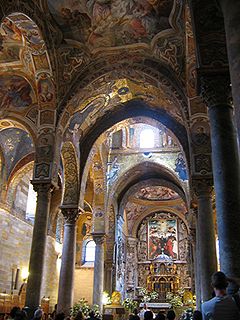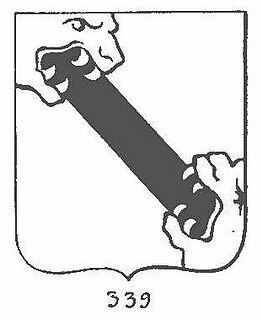 W
WGeorge of Antioch was the first to hold the office of ammiratus ammiratorum in the Norman Kingdom of Sicily. He was a Syrian-born Byzantine Christian of Greek ancestry. He was born in Antioch, whence he moved with his father, Michael, and mother to Tunisia following the First Crusade. He and his parents found employment under the Zirid emir, Tamim ibn Muizz. George fell out with Tamim's son and successor, Yahya, and secretly left for Christian Sicily by stealing away in disguise aboard a Palermitan ship harbored in Mahdia. Upon arrival in the Sicilian capital, George went immediately to the palace and found service with the Norman count, Roger II.
 W
WUgolino della Gherardesca, Count of Donoratico, was an Italian nobleman, politician and naval commander. He was frequently accused of treason and features prominently in Dante's Divine Comedy.
 W
WMargaritus of Brindisi, called "the new Neptune", was the last great ammiratus ammiratorum of Sicily. Following in the footsteps of Christodulus, George of Antioch, and Maio of Bari, Margaritus led the fleets of the kingdom in the reigns of William II (1166–1189) and Tancred (1189–1194). He probably began as a Greek pirate and gradually rose to the rank of privateer before becoming a permanent admiral of the navy. In 1185, he became the first count palatine of Cephalonia and Zakynthos. In 1192, he became the first count of Malta. He also held the titles of Prince of Taranto and Duke of Durazzo.
 W
WVettor Pisani was a Venetian admiral. He was in command of the Venetian fleet in 1378 during the war against the Genoese, whom he defeated off Capo d'Anzio; subsequently he recaptured Cattaro, Sebenico and Arbe, which had been seized by the Hungarians, the allies of the Genoese. But the Genoese fleet completely defeated Pisani at Pola in May 1379, and on his return to Venice he was thrown into prison. The Genoese then pressed home their victory, and besieged and captured Chioggia, whereby Venice itself was in danger. The people thereupon demanded the liberation of Pisani, in whose skill they had the fullest confidence.
 W
WRoger of Lauria was an Italian admiral in Aragonese service, who was the commander of the fleet of the Crown of Aragon during the War of the Sicilian Vespers. He was probably the most successful and talented naval tactician of the medieval period. He is known as Ruggero or Ruggiero di Lauria in Italian and Roger de Llúria in Catalan.
 W
WFernando (or Fernán) Sánchez de Tovar, 1st Lord of Belves was a significant Castilian soldier and Admiral of the Middle Ages.
 W
WCarlo Zeno was an Italian admiral from Venice, who is considered a hero of the War of Chioggia against the Republic of Genoa.